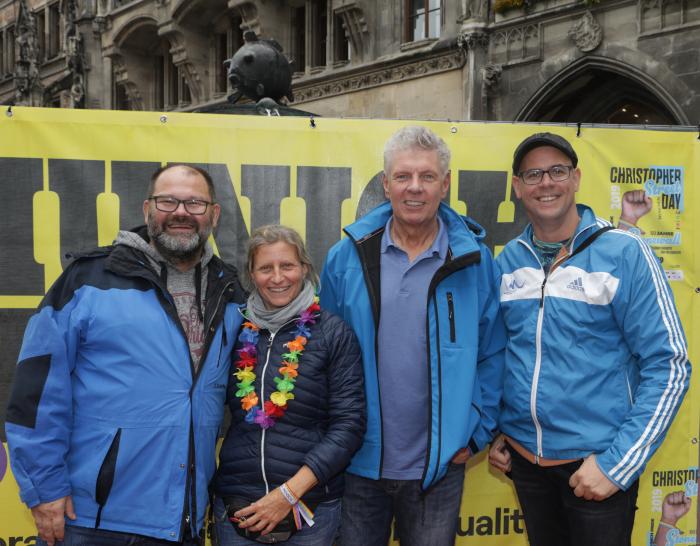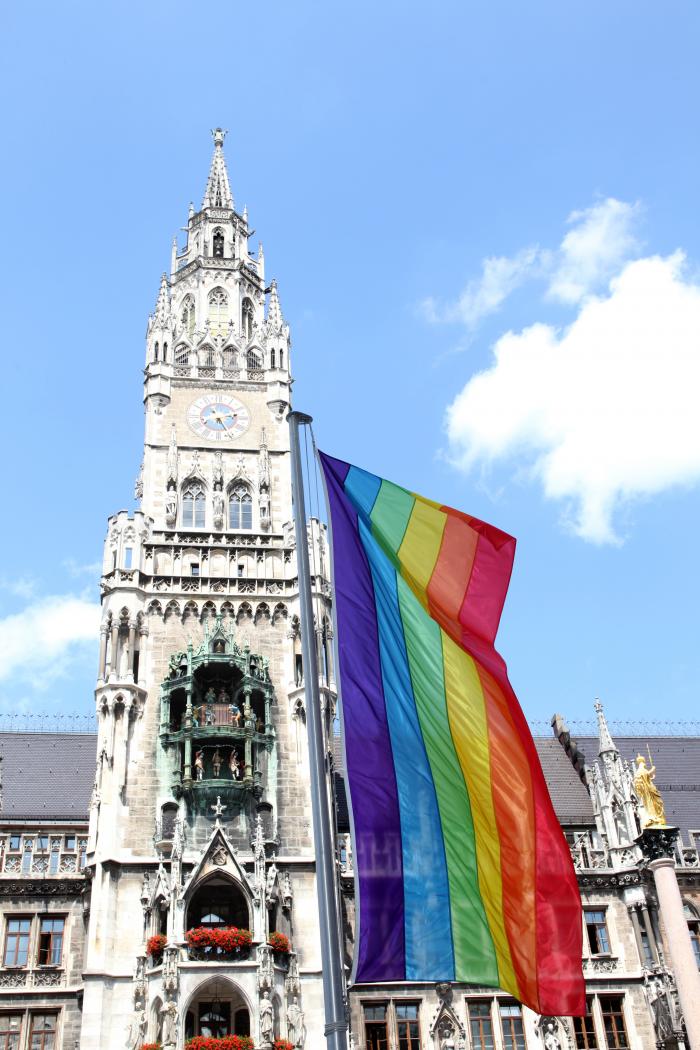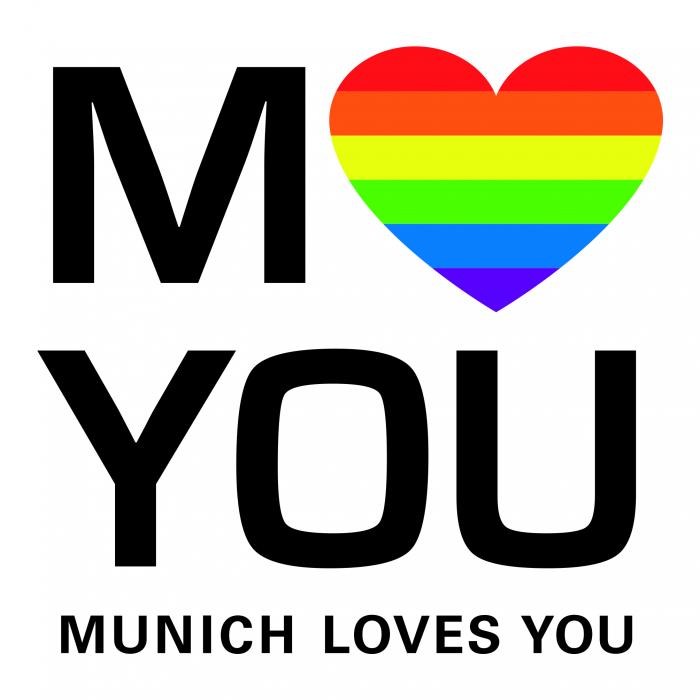This interview is part of our #LoveWhereILive campaign and of our series “#ProgressiveLocalStories”, aimed at raising awareness on the many positive initiatives implemented by progressive cities and regions in Europe. Cities and regions have become laboratories for innovative solutions and, with this series, we want to discover how progressive mayors, councillors and presidents of regions put in place policies to promote and protect LGBTIQ rights.
Your city of Munich is a good model for the promotion and protection of LGBTIQ rights. As a progressive local politician, what do you think about the protection of LGBTIQ rights in your city and in Europe?
The lesbian, gay, bisexual, trans*, inter* and queer community is an integral and valuable part of Munich society. It is the duty and obligation of society and its institutions to ensure quality of life, freedom, acceptance and recognition for all citizens, including LGBTIQ* people. Just as the protection of minorities plays an important role at European level, it also needs to be fleshed out and implemented at local level. Munich is bound by the European Charter of Fundamental Rights in this respect!
LGBTIQ* rights are inextricably linked to the rights of all people. An attack on the rights of LGBTIQ* people is an attack on the rights of all people, because they are fundamental human rights.
The question of LGBTIQ* rights is absolutely central to the values of Munich society and for social harmony in the city. Acceptance of the LGBTIQ* community is a clear signal of the values of the city's society as a whole. Is acceptance a reality? Are people really living together in harmony and solidarity?
The acceptance of people with an LGBTIQ* identity is thus also a measure of social harmony in the city.
In recent decades, there has been significant progress in such matters. Legal equality has advanced and social acceptance has increased.
And yet this progress remains extremely fragile. Right now we are once again seeing an uptick in attacks, degradation and targeted political inequality strategies against LGBTIQ* people. It is vital to take a decisive stand against this!
Munich has for decades taken a clear and unequivocal stance of supporting LGBTIQ* people. We reject any form of exclusion, disadvantage or violence, and work hard to combat them. To this end, we are working with civil society, city and State institutions at various levels.
It is important for us in Munich to be a good place for LGBTIQ* people!

What specific measures have you taken to make your city one in which the rights of LGBTIQ people are fully respected and furthered?
This topic is a high priority for us.
In Munich, the LGBTIQ* Equality Coordination Unit (KGL) plays a central role in framing and implementing LGBTIQ* policy. In order to emphasise the importance of this issue and to boost the effectiveness of the KGL, it is set up as a field office under the direct aegis of the mayor.
The KGL networks with a great many organisations and ensures that LGBTIQ* topics have a constant presence.
Gender equality and anti-discrimination efforts are also a priority within the city administration. The actions taken by Munich as the Land capital are summarised in a brochure (2014-2019):
Topical issues and projects:
- LGBTIQ* and refugees
- Gender-sensitive language inclusive of trans*, inter* and non-binary people
- Training our employees on LGBTIQ* matters
- LGBTIQ* Equality Round Table
- Public acceptance campaigns, e.g. flags on buses and trams for Christopher Street Day (Pride Festival), the "We're Here For You" campaign (www.wirsindfuerdichda.org) for young people, etc.
- Advice and support for employees
- Developing a transition guide to support trans* employees
In order to improve the security and safety of LGBTIQ* people in public spaces, the KGL has set up a cooperation project with the Munich police.
The project focuses on trust-building measures between the community and the police, awareness raising within the police, public relations work, and improving levels of reporting of attacks on LGBTIQ* people.
Munich has been supporting the LGBTIQ* community for many years. Facilities and support are available for every aspect of life.
The city of Munich has set up its own foundation to this end, the Munich Rainbow Foundation.
The following organisations run by the LGBTIQ* community receive financial and technical support from the city:
- Lesbentelefon e.V. [Lesbian Telephone Service]
- Counselling service for lesbian and bisexual women
- Asylum counselling for lesbian and bisexual refugee women
- LeZ, lesbian and queer meeting and communication centre
- Rainbow families centre
- https://www.letra.de
- https://www.regenbogenfamilien-muenchen.de/
- https://www.lez-muenchen.de/
- Gay communication and culture centre, Sub e.V.
- Counselling service for gay and bisexual men
- Asylum counselling for gay and bisexual refugee men
- Sub centre, meeting and communication centre for gay and bisexual men
- Sexual Health Unit
- Strong – LGBTI Anti-Discrimination and Anti-Violence Office
www.subonline.org, https://strong-community.de/ - Münchner Aids-Hilfe e. V. [Munich Aids Support]
- Trans*Inter* Advice Office
- Advice and support for trans*, inter* and non-binary people
- "rosaAlter" [pink Age] Advice Office for LGBTIQ* senior citizens
- Advice and support for older lesbian, gay, bisexual, trans*, inter* and queer people.
- Queer Quarter Herzog*in
- Community housing project for older LGBTIQ* people https://www.rosaalter.de/
- https://www.trans-inter-beratungsstelle.de/de/
- diversity münchen e. V.
- Youth Centre for Queer Youth and Young LGBTIQ*
- diversity cafe, meeting point for LGBTIQ* young people
- diversity@school, awareness-raising project
- https://diversity-muenchen.de/
- Aufklärungsprojekt München e. V. [Munich Awareness-Raising]
- Education and awareness raising, promotion of acceptance in schools and youth organisations
- https://www.aufklaerungsprojekt-muenchen.de/
Munich also supports community events, such as:
- Christopher Street Day Munich [pride festival]
- Various Voices Choir Festival 2018
- Application for the 2026 Gay Games

The European Commission proposed its first LGBTIQ strategy last year and the European Parliament recently declared the EU an LGBTIQ freedom zone. How can the European Union further contribute to promoting LGBTIQ equality and why is this important for your city?
The European Union and its institutions are an important and central partner for LGBTIQ* equality and anti-discrimination. The Charter of Fundamental Rights and the European Convention on Human Rights form the basis for values in the community.
We would like to see the following measures and facilities:
- European LGBTIQ* Directive: A binding EU directive against exclusion, disadvantage and violence to be implemented at national level. Mandatory international requirements are an important pillar for national and local authorities in supporting minorities. For example, in Germany there is no obligation for the Länder to adopt an action plan to combat hostility towards LGBTIQ* people.
- Closer cooperation with the EU institutions at local level, such as the "Europe in May" action between the European Parliament Liaison Office in Munich and the KGL.
- The EU continuing to take a firm stand concerning anti-LGBTIQ* developments in the Member States and worldwide! These stands are important at municipal level, because they also represent empowerment for communities and stakeholders.
- Strengthening the European Fundamental Rights Agency (FRA) and continuing to conduct studies into the situation for LGBTIQ* people in Europe. Using those studies to develop measures such as programmes to combat hostility towards LGBTIQ*
- Easy access without red tape to funding for local LGBTIQ* equality measures. Contact breeds understanding, and understanding breed acceptance. A European youth exchange programme specifically designed to promote acceptance of LGBTIQ* people would be a welcome specific measure to reduce discrimination and exclusion. This programme could be implemented through schools, and youth and cultural organisations.

***
Photo credits:
Photos 1 and 3: City of Munich / Michael Nagy
Photo 2: City of Munich / Erwin Harbeck (Lord mayor Dieter Reiter, second from the right, with the coordination unit team: Andreas Unterforsthuber, Ulrike Mößbauer and Thorsten Wiedeman)
